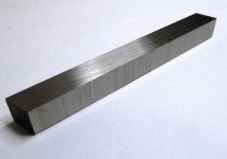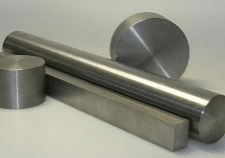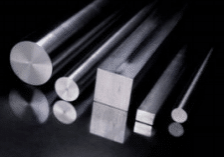P20 Tool Steel



P2, P3, P4, P5, P6, P20, and P21 steels are among the several varieties of low-carbon mould steels, also known as group P steels. The primary alloying elements present in group P steels are nickel and chromium.
Tool steels P20 are either carburised or nitrided. These steels may be machined to fit intricate, sizable dies and moulds. The majority of applications for P20 steels include carburisation. P20 steels are more durable and hardy when chromium and nickel are present.
An overview of P20 tool steels may be found in the sections below.
Chemical Composition
The chemical composition of P20 tool steels is outlined in the following table.
| Element | Content (%) |
| C | 0.28-0.40 |
| Mn | 0.60-1.00 |
| Si | 0.20-0.80 |
| Cr | 1.40-2.00 |
| Mo | 0.30-0.55 |
| Cu | 0.25 |
| P | 0.03 |
| S | 0.03 |
Physical Properties
The following table shows the physical properties of P20 tool steels.
| Properties | Metric | Imperial |
| Density | 7.85 g/cc | 0.284 lb/in3 |
Mechanical Properties
The mechanical properties of P20 tool steels are displayed in the following table.
| Properties | Metric | Imperial |
| Hardness, Brinell (typical) | 300 | 33 |
| Hardness, Rockwell C (typical) | 30 | 30 |
| Tensile strength, ultimate | 965-1030 MPa | 140000-150000 psi |
| Tensile strength, yield | 827-862 MPa | 120000-125000 psi |
| Elongation at break (in 50 mm (2")) | 20.0% | 20.0% |
| Compressive strength | 862 MPa | 125000 psi |
| Charpy impact (V-Notch) | 27.1-33.9 J | 20.0-25.0 ft-lb |
| Poisson's ratio | 0.27-0.30 | 0.27-0.30 |
| Elastic modulus | 190-210 GPa | 27557-30457 ksi |
Thermal Properties
The thermal properties of P20 tool steels are given in the following table.
| Properties | Conditions | ||
| T (°C) | Treatment | ||
| Thermal expansion | 12.8 x 10-6/ºC | 20-425 | - |
